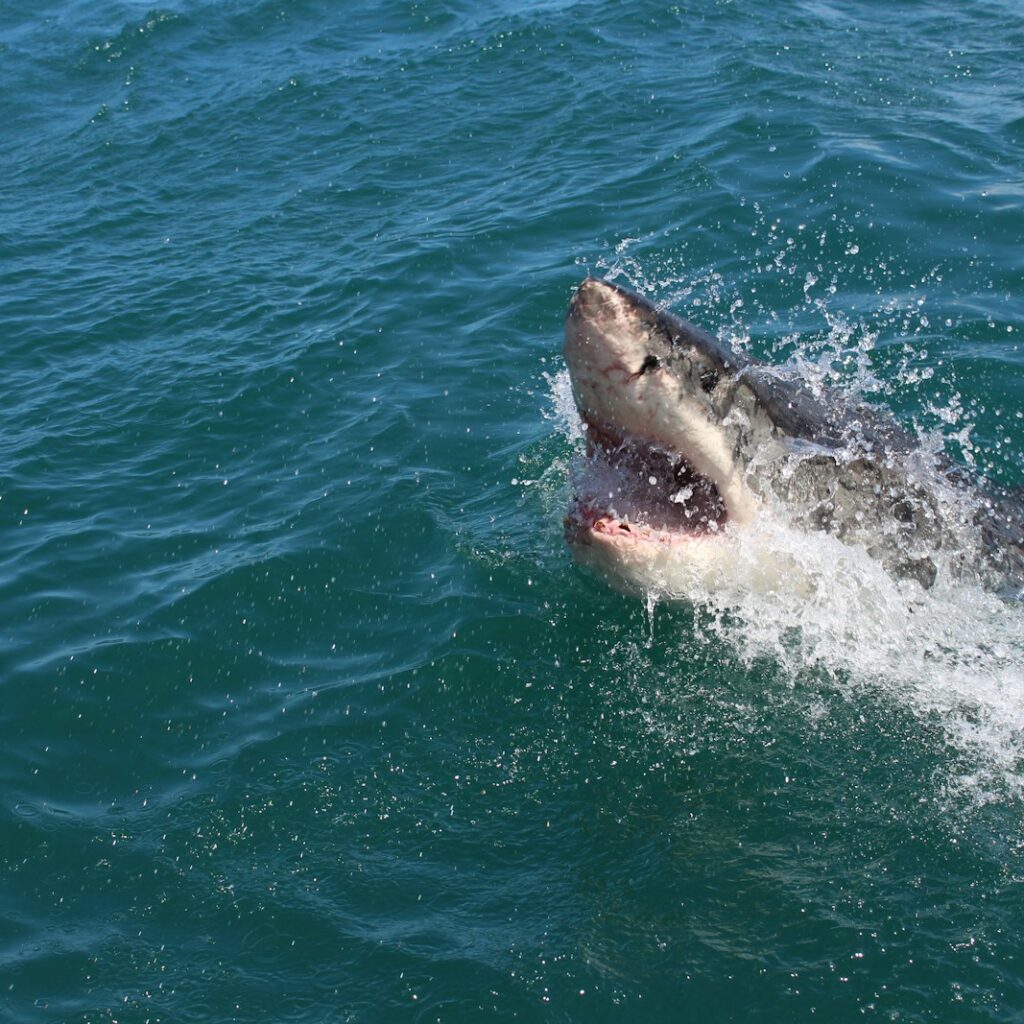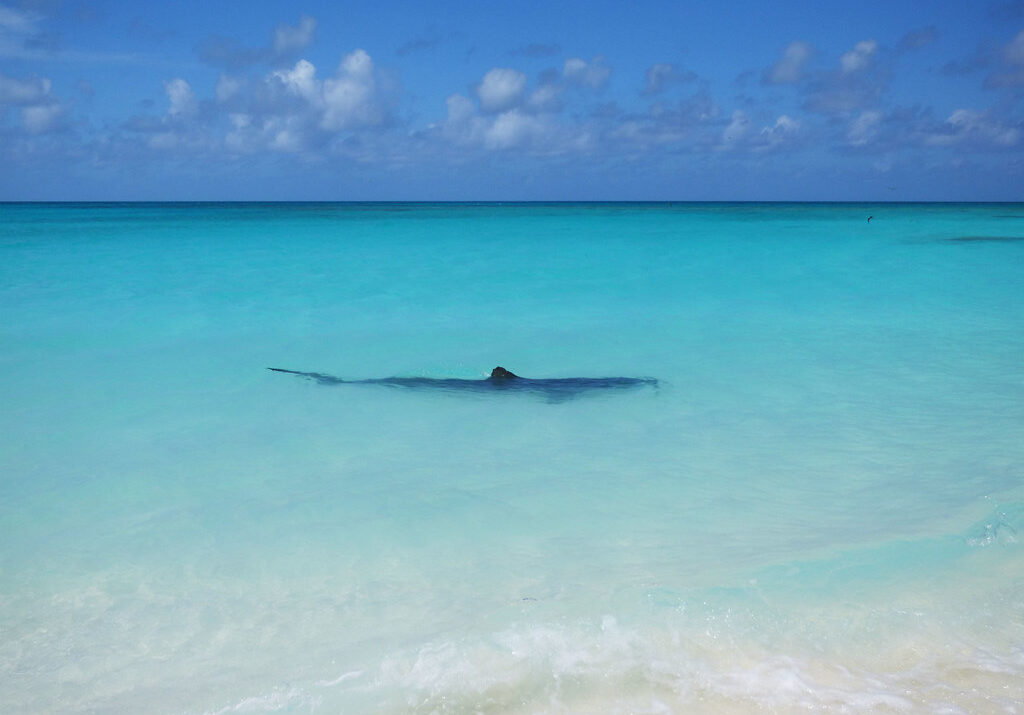A tragic shark attack in the Turks and Caicos Islands left a 55-year-old Canadian woman with severe injuries after she attempted to take a selfie with a shark in shallow waters.
The incident, which occurred last Friday at Thompson Cove Beach, resulted in the woman losing both of her hands after a 6-foot-long shark attacked her. According to local authorities, the woman had “attempted to engage” with the shark before it struck.

Horrific Scene Unfolds on the Beach
Witnesses described a chaotic scene as the woman’s husband rushed into the water in a desperate attempt to save her.
Other tourists quickly gathered, using their clothing to stem the bleeding before emergency services arrived. The victim was rushed to a local hospital before being flown back to Canada for further treatment. Reports suggest one arm was amputated below the wrist, while the other was severed at the mid-forearm.

Play Sky Jumper!
Test your reflexes in Sky Jumper! How far can you go? Click below to play now.
Play NowRare but Growing Concern Over Shark Attacks
Although shark attacks are rare in Turks and Caicos—with only one reported last year—this incident has prompted authorities to urge caution. Experts have noted that human interaction with sharks, such as feeding or attempting to take close-up photos, increases the likelihood of attacks.
In the Cayman Islands, feeding sharks has been illegal since 2022 due to the dangers it poses to both humans and marine life (source).
Shark Bite Patterns and Attack Statistics
Sharks typically target limbs when attacking, often biting the legs, arms, or hands. According to the International Shark Attack File, about 83 people worldwide fall victim to unprovoked shark attacks annually (source).
Bull sharks, known for their aggressive nature and ability to tolerate shallow waters, are common perpetrators in attacks like this one. In July 2020, a great white shark killed Julie Dimperio Holowach, 63, off the coast of Maine, marking the first recorded fatal shark attack in the state’s history.
As tourism continues to bring more people into close contact with marine life, experts warn that such incidents may become more frequent.
While authorities stress that sharks are not inherently aggressive toward humans, engaging with them can have dire consequences. The question remains: how can travelers balance their fascination with nature while ensuring their own safety?

Play Sky Jumper!
Test your reflexes in Sky Jumper! How far can you go? Click below to play now.
Play NowCited Image Source:
The tiger shark image used in this article is sourced from Flickr: Tiger Shark in the Shallows (source) and is subject to applicable license details.






